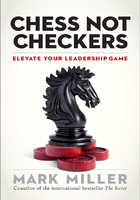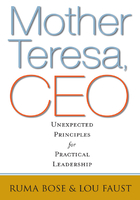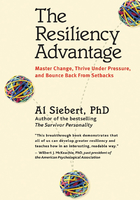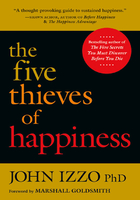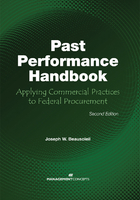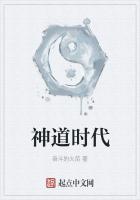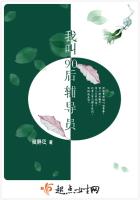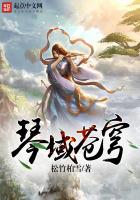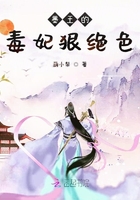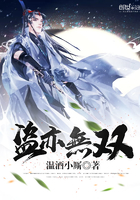David L. Cooperrider
If you could choose only one powerful and resource-filled book on resilience for leaders, what do you suppose it would be? For me the answer is right here. Building Resilience with Appreciative Inquiry is something that should be read by every leader in our turbulent and extreme world of leadership, and read by anyone involved in the helping professions—and that's everyone!
I first became interested in resilience when I started my PhD research on leadership and organization development at Case Western Reserve University. I was young and had very little sense of the intense, often lonely, and unnerving pressures of leadership. When in the midst of some thirty interviews— where every single leader spoke not only of success moments but also of times that nearly broke them, as in what one leader spoke about as “that dark night of the soul”—I woke up one day to a newspaper headline that sent a chill through my body. I've never forgotten the moment I opened the pages to the story (“AROUND THE NATION . . .” 1985):
CLEVELAND, Jan. 28—Frederick Holliday, superintendent of schools in Cleveland, shot himself to death in a school over the weekend, and left a note saying his suicide was a result of the school system's “petty politics,” the authorities said today.
Mr. Holliday's body was found by a student in a stairwell at Cleveland Aviation High School this morning. His death was ruled a suicide by the Cuyahoga County coroner's office. Mr. Holliday, 58 years old, was the 76,000-student district's first black superintendent. . . . A school board member, Joseph Tegreene, said the superintendent feared his contract would not be renewed.
The story ripped through our city like the bullet that pierced through Frederick Holliday's heart. His suicide was a jarring ending to a promising start as a superintendent, which, on the surface, seemed to many as the most successful in years. Few knew of his despair and loss of hope; the resentment he felt toward the crumbling schools, the systemic racism, and the relentless public school budget cuts; and the ire he felt toward a tiny group on the board ostensibly out to block his leadership. Few knew how down on himself he was. Despair somehow visits and envelops us when we can't cope with it and when we have a big dream that falls apart. Getting back up is the hardest part, especially when feeling alone. Although leadership despair and setback ARE not dealt with much in our business schools or leadership research, the call for cultivating real resilience is pervasive anywhere people truly lead and take risks. While the example of Fredrick Holiday might appear as an outlier, some version of what Holiday experienced happens to virtually everyone. Even the greatest, legendary leaders such as Eleanor Roosevelt, Elon Musk, Coretta Scott King, and John F. Kennedy—every single one—have written about moments when ice-cold despair and hopelessness have saturated their every waking moment.
If nothing else, the story of Frederick Holliday sensitized me to the inner life of leadership. And it made me more empathic toward every leader, friend, relative, and colleague taking on much-needed change agendas that are often bigger than life. Yet it is true: there may be nothing more important not only to leadership survival but leadership thriving than resilience—and the remarkable practices that give it tensile strength. Terms like bounce-back capacity trivialize what's meant by the work of resilience.
And that's why this book is so special.
This small volume—written so genuinely, compassionately, and powerfully in terms of its intimate stories and solid evidence base—is a gem. Joan McArthur-Blair and Jeanie Cockell have written a book that could not have arrived at a better time for our world and for the rapidly growing discipline of appreciative inquiry (AI). Everyone needs resilience, not as an end state, but as an ever-growing collaborative and capacity-building practice. Yet to date the self-help books on resilience, in my view, treat the subject far too superficially, as in “It's all about the way you think about adversity.” This book is far different. For one thing, it embraces the richness of life-giving relationship— compassionate colleagueship, skillful mentorship, friendship, evocative coaching, cocounseling, coinquiring—as the requisite medium for the broadening and building of resilience. (It's not something you do just alone.) In addition, whereas most books on resilience focus on prescriptions, as in “Here is how you should change your thinking style,” this compelling volume focuses on the relational practices and first principles of AI and its many strengths-empowering modes of discovery, design thinking, and action learning. Moreover, this is the first book I know of where we are encouraged to think of resilience not as a noun, as a thing, but as a verb form, something more active and forged; let's call it the practice of resiliencing. To be sure, the nuanced commentaries, practices, and perspectives offered in this book can help you transform your life as well as the resilience capacity of many others, but not superficially or in some disingenuous way. It's not a motivational speech. It's about a lifelong art and practice. It's about making resilient lives happen: your own and that of everyone you care about, work with, and want to support.
This book emerges from the theory and practice of AI (Cooperrider 1986)—something that's been hailed as “a positive revolution in change.” Today, AI's approach to strengthsinspired change (rather than problematizing change) is being practiced everywhere. The corporate world; the worlds of public service, economics, education, faith, philanthropy; and the fields of positive psychology and design thinking—all have been affected by AI principles. Indeed, Kenneth Gergen, one of the greatest scholars ever to come out of Harvard, once said: “The growth and application of Appreciative Inquiry over the past two decades has been nothing short of phenomenal. It is arguably the most powerful process of positive organizational change ever devised” (Cooperrider 2017, 82). AI is a discovery process—it is premised on the principle that human systems grow in the direction of what they most rigorously, frequently, and creatively ask questions about—and it searches for everything that “gives life” to persons, organizations, communities, and larger systems when they are most alive, resilient, and healthy in their interconnected ecology of relationships. To appreciate, quite simply, means to value and to recognize that which has value; it is a way of knowing and valuing the life-giving dynamic in any living entity. And one of the major achievements of this book is that it brings the power of AI not just to joyful extraordinary moments but to some of the harshest, most demanding, and seemingly impossible experiences in life.
In contrast to the positive psychology and positive organizational scholarship movements that define their work around the concept of “positive deviance”—that is, studying and focusing their field on “the extraordinary” and thereby often dichotomizing or creating an unhealthy split of positive from negative human experience—AI transcends this polarity. It's not about positive or negative human experience, says AI: the task is the quest for what gives life and generative potential— even in the midst of the tragic. One of the great frontiers of AI that this volume opens up is how to bring the “the gift of new eyes” to successively more demanding arenas for the duet of appreciation and inquiry. Imagine a Maslow-like triangle or pyramid with three levels.
At the lowest rung—and perhaps the easiest domain in which to practice AI—is the appreciative inquiry into the extraordinary, the best in human experience, those times of positive deviance that jump out. At the second and sequentially more difficult rung is the capacity to do AI during times of the ordinary—at those times that are so taken for granted that we often fail to apprehend, appreciate, or even attempt to search for everything that is giving life. Here we are talking about the capacity for seeing the best in the seemingly ordinary and insignificant events, where there are no starbursts, no mountaintop experiences. Thank goodness, then, for the example of our gifted artists and the many layers of meaning they help us see and appreciate: think of how a Vincent van Gogh teaches us to see the extraordinary in a coffeepot or a pair of worn-out shoes, a pipe, or a pouch. William Wordsworth, as another example of the second level of appreciative maturity, encourages the cultivation of appreciative intelligence in the midst of the ordinary. He writes: “While with an eye made quiet by the power / of harmony, and deep power of joy / we see into the life of things.” And then there is a third developmental level for the practice of AI—the least understood. It's the kind of AI sensitivity, skill, or literacy as evidenced by someone like Victor Frankl, in his enduring classic, Man's Search for Meaning. So, this, the third level of elevated AI capacity, is not appreciative inquiry into moments of excellence or into experiences of the life-giving in the ordinary, but AI in the midst of tragedy. Victor Frankl, as we all know, was in a concentration camp where everything was taken from him and others, yet he saw resources, relationships, and regenerative possibilities that gave life to many, and built a whole new edifice and field of transformational capacity in psychology. There is example after example of Frankl's idea of finding the life-promoting meaning in the midst of extreme suffering; they are threaded throughout his accounts of the harsh conditions of the Nazi concentration camps. In his 1959 book, Saying Yes to Life in Spite of Everything: A Psychologist Experiences the Concentration Camp, he said, “What is to give light must endure burning” (Frankl 1959).
This is the great achievement of this book. The authors not only tell us but show us the “how” of it all. Drawing on Frankl and others, they demonstrate that we can see only half of anything; the other half is the meaning we give to what we appreciate. For Joan and Jeanie, the AI methodology is relevant everywhere, from the extraordinary to the tragic, not just in moments of success and exceptional deeds.
What AI does, then, in terms of a theory of change, is embrace one of the most difficult and meanest paradoxes of change. It argues that we change best when we are strongest: as human beings, we change best and in the most capacityfilled way when we experience the resonating power of every relevant resource, even the tiniest seed of hope, available to us across the entire spectrum of systemic strengths, outside and inside any given system, including social and cultural assets; technical and economic assets; psychological and spiritual strengths; ecological strengths of nature; and the strengths of moral models, positive deviations, and collaborative creativity. And if we change best when we are strongest or have access to everything needed for resilience (encircling the change domain in a kind of “surround sound of strengths” and meanings), then the reverse is also true. For there is a mean paradox inherent in situations where change, resilience, and renewal are needed most—for example, when persons are in a dark depression or there are the imminent threats of a company facing bankruptcy or traumatic market shifts. At precisely those moments when we feel the weakest, we are being asked to change? This mean paradox should be reversed, shouldn't it?
Well, that's exactly what this book can help you do. The book is a treasure trove of stories that echo our lives. It is a conceptual resource that helps us work with the key triad for building resilience, which the authors identify as hope, despair, and forgiveness. Within a week after my first thrilling reading, I leveraged this book's poetic questions about hope, despair, and forgiveness, the generous workshop tools, and the resiliencebuilding practices with a sixty-two-year-old close relative and loved one and then with one of the most challenged executive teams (in the auto industry) I've ever worked with. Appreciative inquiry, in times of trauma or tragedy, is indeed a crucial next stage of development for many in the field of positive change, and it is not an oxymoron. As I said, after reading this book, I experienced its transformative power with leaders in business, and with loved ones, as if Joan and Jeanie were right there, gently guiding the initiative. When was the last time a book came to life for you just at the right time and instantly? Of course, that's no simple achievement.
That's how special and important this book is.
Distinguished University Professor,
Case Western Reserve University
Honorary Chair, The David L.
Cooperrider Center for Appreciative
Inquiry, Champlain College, Stiller
School of Business

